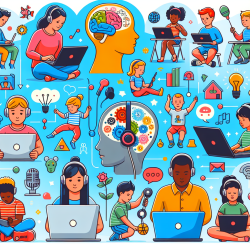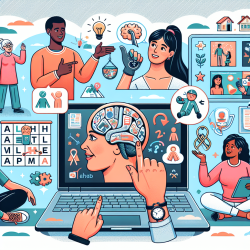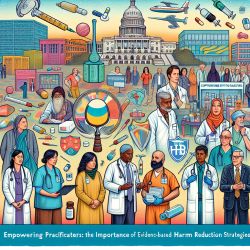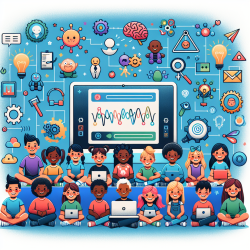Introduction
The COVID-19 pandemic has reshaped the landscape of education, particularly in fields requiring experiential learning, such as social work. The research article "Teaching and Learning in a Time of Corona: A Social Work Experience" by Berger et al. (2021) offers valuable insights into the challenges and adaptations faced by educators and students during this unprecedented time. This blog post aims to explore how practitioners can enhance their skills by implementing the outcomes of this research or by engaging in further study.
Understanding the Research
The study conducted by Berger and colleagues involved reflective journals from participants, including doctoral students, an instructor, and a program director. The analysis of these journals identified two main themes: the developmental process of reactions and perceptions, and the factors shaping these experiences. The findings highlight the critical role of reflective practice in navigating the challenges of online education during a crisis.
Key Themes and Lessons Learned
1. Developmental Process of Experience
The research identified a three-stage developmental process experienced by participants:
- Stage One: A Sense of Chaos - Initial reactions included stress, anxiety, and confusion as participants adapted to the abrupt transition to online learning.
- Stage Two: Struggling to Cope - Participants began to process the experience, grappling with the challenges and seeking strategies to cope.
- Stage Three: Learning to Live in a "New Normal" - Participants adjusted to new routines, demonstrating resilience and a return to more stable functioning.
2. Factors Shaping the Experience
The study identified several factors that influenced participants' experiences, including:
- Institutional Support - Limited support from institutions exacerbated stress, highlighting the need for comprehensive crisis readiness protocols.
- Community and Social Support - A sense of community and support from peers and family played a crucial role in helping participants cope.
- Racism and Inequity - The pandemic exacerbated existing societal disparities, affecting participants' experiences and highlighting the need for awareness and strategies to address these issues.
Implementing Reflective Practice
Reflective practice, as demonstrated in the study, is a powerful tool for professional development. Practitioners can enhance their skills by:
- Engaging in regular reflective journaling to process experiences and identify areas for growth.
- Participating in peer support groups to share experiences and strategies for coping with challenges.
- Advocating for institutional support and resources to facilitate effective online learning environments.
Encouraging Further Research
The findings of this study underscore the importance of ongoing research into the impacts of crisis on education and professional practice. Practitioners are encouraged to engage in further research to explore:
- The long-term effects of the pandemic on educational outcomes and professional development.
- Effective strategies for integrating technology into experiential learning environments.
- Approaches to addressing inequities and promoting inclusivity in educational settings.
Conclusion
The research by Berger et al. provides valuable insights into the experiences of educators and students during the COVID-19 pandemic. By implementing reflective practices and engaging in further research, practitioners can enhance their skills and contribute to improved educational outcomes in times of crisis.
To read the original research paper, please follow this link: Teaching and Learning in a Time of Corona: A Social Work Experience.










